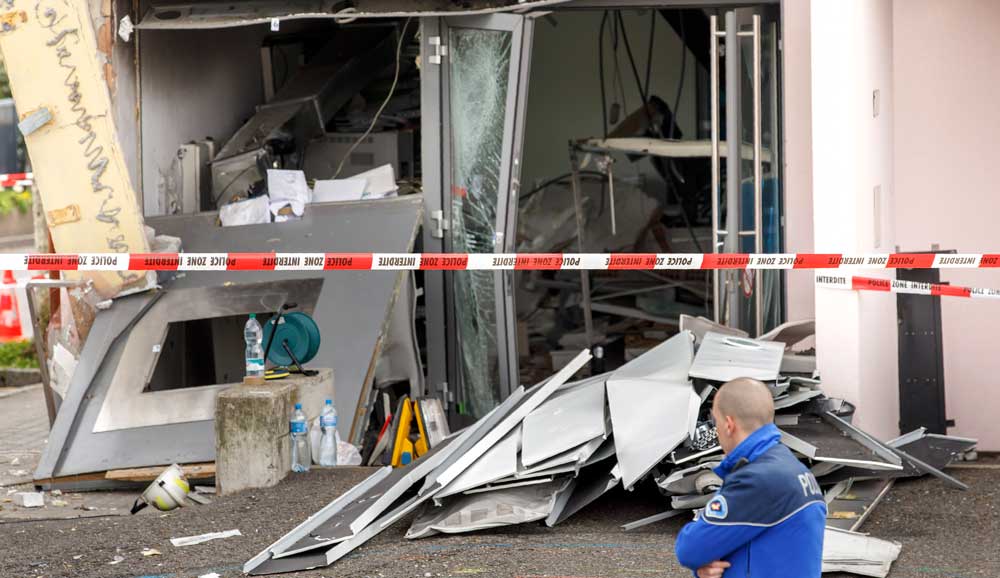
Reduced to rubble: The ATMs in a Raiffeisenbank in Veyrier were blown up in a robbery in April 2015.
Exploding ATMs
In 2020, Switzerland, like other countries in Europe, experienced a number of attacks on ATMs. In the autumn, the criminals struck several times with the same modus operandi: by blowing up the safe.
In the middle of the night, the inhabitants of the peaceful Bernese village of Utzenstorf were woken by the sudden noise of an explosion. Then came a second blast, and a third. Smoke rose from the railway station. Three successive explosions had targeted an ATM, reducing it to a ruin. In less than ten minutes, three men wearing black hoodies looted several thousands of francs and made their getaway on mopeds.
The same scenario
A few days later, the same scenario was played out in Büren an der Aare, also in the canton of Bern. An ATM blown up, men, a moped. Prior to this, similar attacks on ATMs had occurred in Roggwil, Cologny, Perly, Arni, Satigny, Vicosoprano and Rothrist, although the method used was not always exactly the same. This begged the question: did any of the 22 attacks carried out in 2020 bear the same signature, and could they be linked?
For fedpol, which was in charge of the investigations ordered by the OAG, every clue was of significance. These attacks had one key thing in common: the use of explosives. Conventional gunpowder, non-conventional explosives, TNT (trinitrotoluene) and even TATP (triacetone triperoxide) caused the explosions. This information was confirmed by the FOR (Forensic Institute) in Zurich, one of fedpol's key partners.
Big bang
The modus operandi of the crime determines which authority has jurisdiction to investigate. If an ATM is broken into using tools such as angle grinders, hydraulic cable-cutters or lever tools, the investigation is conducted by the cantonal police under the command of the cantonal public prosecutors' offices. fedpol, under mandate from the Office of the Attorney General of Switzerland, is responsible for cases involving explosives, either homemade such as TATP, conventional gunpowder, non-conventional explosives or TNT. Each explosion that occurs usually causes severe damage to property and can be a danger to people. Unexploded charges are particularly dangerous.
Since 2019, many countries in Europe have been affected by this phenomenon, with attacks occurring in the Netherlands, Germany, Italy, Austria, France, Romania and Spain. fedpol has been able to identify several organised gangs that share this lucrative playground. The criminals come from various parts of the world, including the Balkans, France, Romania, Moldavia and North Africa. They usually operate in groups of three or four and use different means of transport to escape. Often just a small detail can give the game away – such as a small amount of DNA material. As for the attackers of Utzenstorf and Büren a. A., they are still at large, but fedpol is close on their heels.